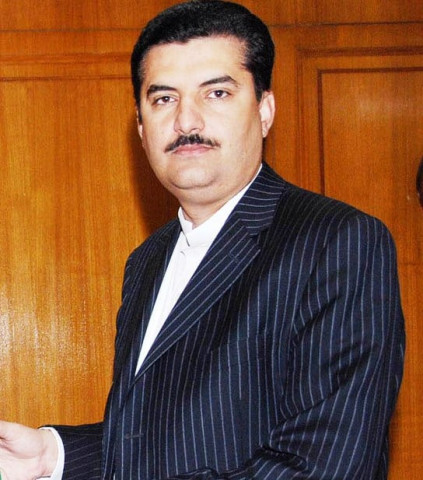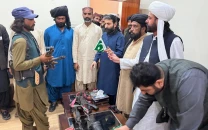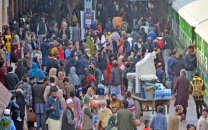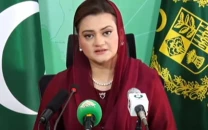Lawmakers’ development funds bane for local govts: Kundi
Says policy instituted under Zia regime has lowered the standard parliament should have for MPs

Faisal Karim Kundi. PHOTO: PID/FILE
Under the previous Pakistan Peoples Party government, the then ruling party and its coalition partners spent more than Rs125 billion ostensibly on development projects. Some leading MNAs received unprecedented amounts under garb of development schemes for their constituencies – a detailed list was published by The Express Tribune in June 2015.
The amount doled out by the PPP government was nearly four times larger than the combined Rs33.8 billion handed to lawmakers from 1985 to 2008, some 23 years.
The incumbent Pakistan Muslim League-Nawaz government says it has introduced transparency and given each lawmaker a fixed Rs20 million a year, but the claims are disputed on several accounts.

No government has so far dared to reverse what is a legacy of a military regime to use the national kitty for political patronage. The policy, instead, has made membership in parliament and provincial assemblies a lucrative business. It has also negated the role of local governments as mainstream parties remain averse to devolving powers.
In an interview with The Express Tribune, ex-deputy speaker of the National Assembly Faisal Kundi revealed how he, as a young legislator, witnessed dodgy business in the corridors of power.
As deputy speaker during the PPP government, he chaired more sessions than then speaker Fahmida Mirza, including many important ones like the joint session held after the US raid on Osama bin Laden’s Abbottabad compound. According to him, as deputy speaker he could closely watch the conduct of every MNA.
Kundi is against the policy of doling out discretionary development funds to lawmakers. “If you stop the funds and limit parliamentarians to their original role as lawmakers, half of your parliament will be empty. Most lawmakers will join local governments instead,” he said. “The policy has been a bane for local governments in the country.”
The former deputy speaker said the policy has also diminished lawmakers’ respect in the eyes of the public and lowered the standard parliament should have for MPs. “There were a number of MPs who never made a speech on the floor of the house or initiated any legislation.”
He brought up the 2010 flash floods as an example of when lawmakers were given money for relief efforts. “All that money was wasted since these legislators had no organisation at the local level to effectively use it.”
Kundi added that to an MNA, Rs20 million was not enough given the extent of a constituency. “Two prime ministers from my party used their discretionary quota in allocating funds to both treasury and opposition members.”
‘PML-N anticipated PPP-led govt’s collapse’
Kundi made another interesting disclosure on PML-N’s quick separation from the PPP-led government within few months of its formation in 2008. He said the former party used the call for restoring judges ousted by Pervez Musharraf as a pretext. He added that PML-N believed the government would collapse in six months due to worsening economy.
“When presented with our first budget, PML-N’s Ishaq Dar told his party leadership that the government would collapse within six months and advised them to quit the coalition,” he said.
“Everyone knows who restored the judges. Do you think they were restored due to Nawaz Sharif’s long march? Nawaz came out of the house only after he knew the judges will be restored,” he said referring to PML-N’s March 2009 long march.
As PPP had only 125 seats in the NA, it needed at least 25 more to survive. According to Kundi, PPP managed this by securing alliances with smaller parties through use of the prime minister’s discretionary fund allocations. He defended the move in light of the circumstances of that time, saying PML-N would have quit government had it faced 10% of the challenges PPP faced during its tenure.
Kundi also lamented that no MP supported then speaker Fahmida Mirza when she rejected the reference against then premier Yousaf Raza Gilani. Her ruling was scrapped by the Supreme Court.
Published in The Express Tribune, August 8th, 2016.



















COMMENTS
Comments are moderated and generally will be posted if they are on-topic and not abusive.
For more information, please see our Comments FAQ